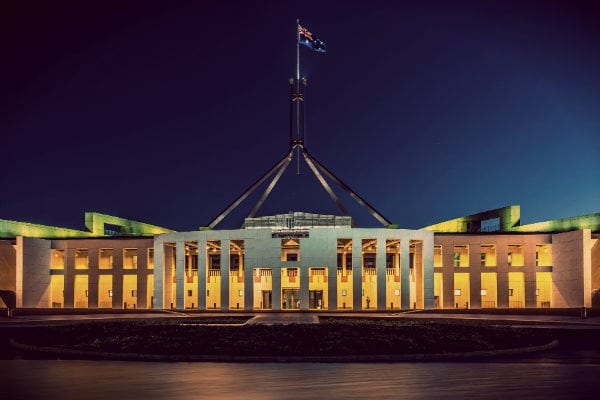But, perhaps the worst nightmare of every political staffer is the idea that one day they might be responsible for an unintended tabloid splash.
It’s embarrassing and seen as unprofessional, yes. But more than that, staffers believe in their causes. Whatever side of politics they come from, for the most part, they are a group of people who fundamentally believe in the good they are trying to do in the world. The worst nightmare scenario is not necessarily the personal shame they might feel, but it’s the idea that they could derail the policy outcomes they are trying to achieve. Or the political party that is driving them.
Some commentators have expressed surprise that in the age of #metoo, there hasn’t been a Canberra story.
After all, rumours fly around Canberra. They have for years. Colleagues warn each other away from job offers with difficult bosses. Women advise each other of the male politicians and senior staffers that they might want to avoid being alone with.
Most of us have experienced it. Verbal abuse. Inappropriate expectations. Standover tactics. Bullying. Harassment. Sexual propositions. Borderline assault. Gaslighting.
An MP I worked for was known for throwing chairs across rooms and for leaving staff alone with dangerous constituents. He bullied me and gaslit me for the entire period I worked for him. His behaviour was well known across the party. Nothing was done to protect me or my colleagues.
A candidate whose campaign I ran physically and verbally intimidated me. A state MP I worked for as a very young woman verbally abused me on an almost weekly basis.
A federal MP propositioned me at least twice and when I reported it to my boss at the time, no action was taken.
But even now, having lived through these experiences in my time in state and federal politics, I hide behind a cloak of anonymity. Even now, out of politics for nearly a decade, I am declining to share the party I spent my 20s and 30s working for.
Even now, the idea that I might derail the goals that my former party are trying to achieve is still the stuff of nightmares.
It’s no surprise to me that there hasn’t been a Canberra #metoo story. I will be surprised if there is one at all.
I have no idea if the claims against Emma Husar are true or not. But I do know that behind them are some 20 staff who very likely believe in the cause they work for, and feel physically ill that the bullying and harassment they say they have been subject to might become political fodder.
If the claims against Emma Husar are true, she should face appropriate consequences. But in the meantime, when politicians make the allegations against her into stuff of political too-ing and fro-ing, they should understand that what they’re really doing is entrenching a culture where bullying and harassment of staff is acceptable.
What an example they are for the rest of us.
The author is known to Women’s Agenda but wishes to remain anonymous.


